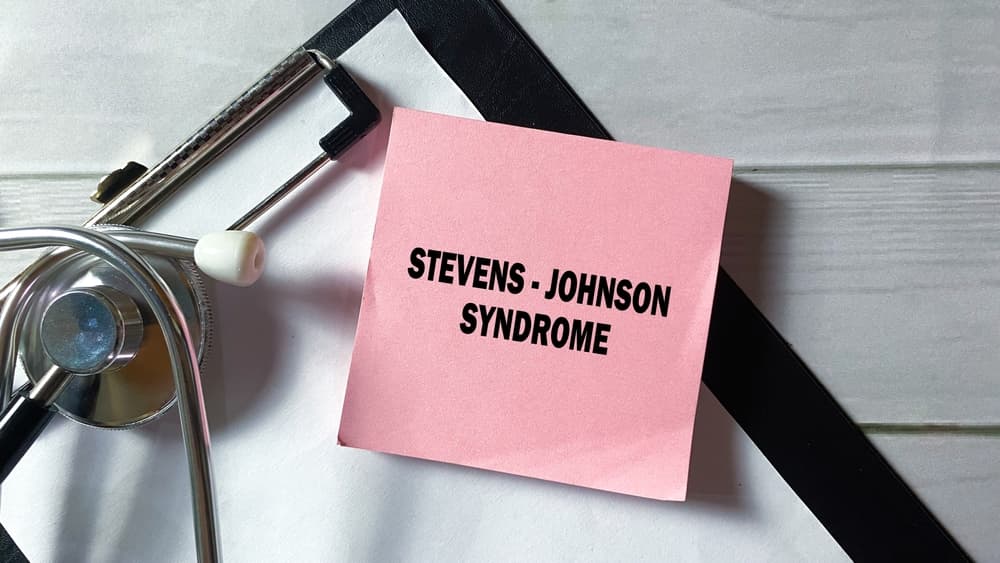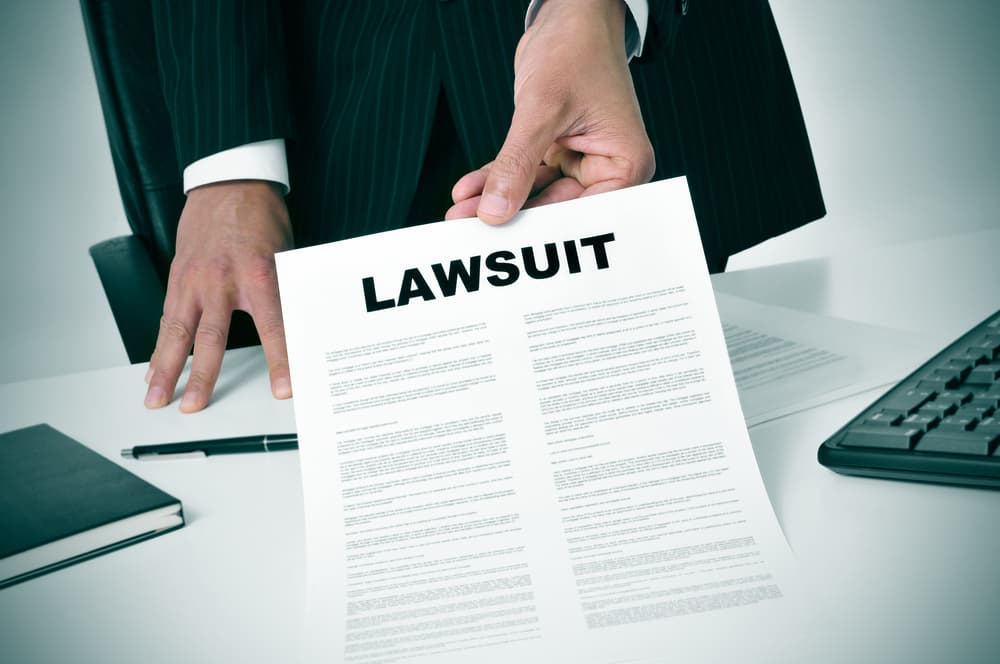If you or a loved one has suffered from Stevens-Johnson Syndrome (SJS) caused by a prescription medication, you’re likely feeling overwhelmed, exhausted, and full of questions. How could this happen? Did someone know the risks and fail to warn you? And most of all, is it possible to find justice for the harm you’ve endured? These are difficult and deeply personal questions for which there’s no simple answer. Many others have walked this path before you, and some have indeed found justice through legal action. Reach out a dedicated and experienced SJS lawyer near your to obtain the legal relief and healing you rightfully deserve.
What Is Stevens-Johnson Syndrome?

Stevens-Johnson Syndrome is a rare but extremely serious reaction to certain medications, as well as, in some cases, infections. It’s considered a medical emergency because of how rapidly it can progress. SJS often begins with generalized symptoms like fever, fatigue, or sore throat, leading many people to believe they’re coming down with the flu. But soon, a telltale rash develops, which quickly worsens into painful blisters and peeling of the skin. The condition doesn’t just affect the skin on the outside; it also targets the mucous membranes inside your body, causing damage to your eyes, mouth, throat, and sometimes even internal organs.
This is no ordinary allergic reaction. SJS can cause permanent damage to the body, including blindness, severe scarring, and lung complications. Some individuals develop an even more advanced form of the condition known as toxic epidermal necrolysis (TEN), which poses an even higher risk of death and permanent injury. No one should have to deal with such a devastating condition, especially if it was caused by medications that pharmaceutical companies failed to properly test, label, or warn about.
For many people, SJS happens unpredictably. They might be taking a drug that’s been widely prescribed with no clear warning of these risks. But studies and real-world experience have shown that certain medications, particularly antibiotics, anticonvulsants, and nonsteroidal anti-inflammatory drugs (NSAIDs), increase the likelihood of developing SJS. This leaves patients wondering whether someone failed in their duty of care to keep them safe.
Can You Hold a Drug Company Accountable for SJS?

The legal system recognizes that consumers have rights when using prescription medications or over-the-counter products. Drug manufacturers have a responsibility to create safe medications and warn doctors and patients about risks they know, or should reasonably know, exist. When that duty is ignored or violated, and people are harmed as a result, it may be possible to hold companies accountable through a lawsuit.
Drug-induced SJS cases often involve allegations that pharmaceutical companies weren't transparent about how their drug could cause dangerous reactions. Sometimes the issue lies with improper drug testing before the medication was released to the market. Other cases allege that companies knew about the risks but downplayed them or failed to update warning labels in a timely manner.
By pursuing a legal case, individuals and families affected by SJS can seek compensation for medical bills, pain and suffering, lost income, and other losses. Just as importantly, filing a suit can help send a powerful message to drugmakers, potentially influencing them to improve safety practices in the future and prevent harm to others.
While no legal victory can undo the physical and emotional harm of SJS, past lawsuits have shown that justice is possible. Over the years, individuals and families have successfully pursued claims against drug manufacturers in cases similar to yours, offering a glimmer of hope to others in the fight for accountability.
What Makes a Case Successful?
Successful SJS lawsuits often hinge on proving that the drug manufacturer was negligent in their duty to protect the public. This can involve showing that:
- The drug was unreasonably dangerous for its intended use.
- The manufacturer failed to provide adequate warnings about the risks of SJS.
- Testing or studies demonstrated risks the company failed to disclose.
- The harm was directly caused by the medication in question.
To win a case, it’s also essential to provide strong medical documentation linking the onset of SJS to the drug and show how it has impacted daily life. No case is won overnight, and these legal battles can require significant effort and resources. However, the examples above demonstrate that persistence and a well-prepared case can yield significant results.
Examples of Successful SJS Lawsuits
Reviewing examples of successful Stevens-Johnson Syndrome lawsuits can provide reassurance that justice is achievable. While each case is unique and no outcome is guaranteed, the following stories demonstrate that drug companies can, and have, been held to account for the suffering they caused:
Case Study 3: Allopurinol and a $35 Million Verdict
A three-year-old boy, Bryson Warren, tragically passed away after developing Stevens-Johnson Syndrome due to prolonged use of allopurinol while being treated for Burkitt lymphoma at the Children’s Hospital of Georgia. Despite clear symptoms like skin sloughing, doctors failed to stop the drug or consult a specialist until it was too late. After nine days of worsening symptoms, Bryson’s condition was finally diagnosed, but he passed away the following day.
The jury awarded his family $35 million, recognizing his pain, the loss of his young life, and the emotional trauma of his parents, underscoring the critical importance of timely care.
Case Study: Ibuprofen and a $63 Million Verdict
A high-profile case involved a girl who was just seven years old when she developed SJS after taking children’s ibuprofen (marketed under popular brand names like Motrin). Her condition progressed rapidly, leaving her with severe burns over much of her body, vision loss, and permanent lung and other organ damage. Her family alleged that the drug’s manufacturer had failed to properly inform the public about the known risk of SJS tied to ibuprofen use.
The jury sided with the family, awarding them $63 million in damages. This significant verdict not only allowed them to provide for their daughter’s lifelong medical needs but also sent a powerful message to the pharmaceutical industry about the importance of drug safety transparency.
Case Study 3: Sulfonamides and Quiet Settlements
Sulfonamide antibiotics, commonly used to treat bacterial infections, have long been associated with SJS cases. While many lawsuits involving these drugs have been quietly settled out of court, they still serve as evidence that drugmakers recognize their responsibility when patients suffer harm. Settlements may not always make headlines, but they provide a way for individuals and families to recover compensation without enduring prolonged legal battles.
The Emotional Weight of Legal Battles
For those affected by SJS, the decision to pursue a lawsuit comes with its own challenges. The emotional toll of revisiting such a life-altering event can be immense. Often, families grapple with feelings of frustration and grief as they recount their experiences, not to mention the stress of taking on a large corporation that seemingly has endless resources at its disposal.
But it’s crucial to remember that you don’t have to go through this alone. Support systems, both personal and legal, exist to help ease your burden. Knowing that others have fought this fight and won can offer strength on the hardest days. Whether the goal is financial recovery, raising awareness, or making sure another family doesn’t endure the same pain, seeking legal recourse can be a meaningful and empowering step forward.
What Steps Can You Take If You’re Considering a Lawsuit?

Deciding to take legal action after suffering from Stevens-Johnson Syndrome (SJS) is no small step. It’s a deeply personal decision, often driven by the need for justice, accountability, and support after such a devastating medical ordeal. If you believe your case may involve a medication-related cause of SJS, here are the steps you might consider to move forward.
1. Seek Comprehensive Medical Documentation
The foundation of any strong legal case is clear evidence. For individuals or families affected by SJS, this begins with medical documentation. Thoroughly record every aspect of the injury, from the medications taken to the symptoms experienced and the medical treatments required. This includes:
- Diagnosis records confirming SJS (and toxic epidermal necrolysis, if applicable).
- A timeline of when you began the medication and when symptoms appeared.
- Reports from healthcare providers detailing the medication they believe caused the reaction.
- Receipts or prescriptions verifying that you took the implicated drug.
This documentation not only paints a picture of how the injury happened but also allows your legal team to link your specific case to known drug-associated risks of SJS.
2. Research Known Links Between Medications and SJS
Certain medications are more frequently associated with Stevens-Johnson Syndrome, as outlined earlier. Investigating whether the drug you or your loved one took has been linked to SJS can strengthen your case. For instance, identifying warnings in product labeling, past lawsuits, or scientific studies connecting an ingredient to SJS could help establish negligence or a failure to warn in your situation.
However, this type of research can be overwhelming, especially if you’re struggling with the physical and emotional toll SJS has taken. This is where professional legal guidance comes in to help build and clarify your case.
3. Preserve Visual Evidence
Visual documentation of your injuries is crucial when seeking damages in a lawsuit. While this can be incredibly difficult to revisit or share, pictures of blistered skin, scarring, or hospitalization can clearly show the severity of your suffering. This visual evidence complements medical records and helps others, including juries, understand the human impact of SJS in your life.
4. Consult with Medical Experts
Medical expert testimony is often a linchpin in drug-related injury cases. These professionals can explain how SJS develops, how it’s tied to the use of certain medications, and how your injuries are consistent with known risks. They can also weigh in on whether the drug manufacturer’s warnings (or lack thereof) were adequate under industry standards. A trusted legal team will arrange access to these resources, ensuring your case is supported by top-tier knowledge.
5. Reach Out to a Legal Professional
If you’re considering legal action, it’s essential to have experienced advocates in your corner. Pharmaceutical lawsuits can be complicated, involving scientific evidence, corporate legal teams, and an array of regulations. Having a compassionate legal team that understands the specifics of drug-induced SJS cases can make all the difference. They can explain your legal rights, determine if you have a strong case, and guide you step-by-step through the process.
Remember, you don’t need to have all the answers when you call. A good legal team knows how to ask the right questions to help you determine your next move.
Why Legal Guidance Is Important
Cases involving drug-related injuries like SJS will often lead you directly into the proverbial David vs. Goliath scenario. Major pharmaceutical companies retain sophisticated teams of lawyers to protect their interests. For a single individual dealing with pain, trauma, and emotional exhaustion from an SJS diagnosis, this can feel insurmountable.
This is why legal representation is so important. A reputable law firm dedicated to personal injury and drug injury cases levels the playing field. Here’s how they can help:
Handling the Complex Details of Pharmaceutical Law
Drug injury cases aren’t just about proving that someone was hurt; they’re about proving a company’s responsibility for that harm. This requires an understanding of drug labeling laws, FDA reporting regulations, pharmaceutical testing protocols, and more. An experienced law firm will know how to determine where a drugmaker went wrong and use that evidence to build a compelling case.
Connecting Your Case to Historical Precedents
Drug companies often track lawsuits and settle out of court to avoid attracting attention. This means there’s a history of legal victories in many SJS drug cases that may apply to your circumstances. Legal professionals will dig into these cases, using what they’ve learned to bolster your chance of success.
Maximizing Compensation
No amount of money can undo the physical and emotional pain caused by SJS. But compensation can ease the financial burden while providing support for treatment and recovery. Legal representation ensures that all available avenues for restitution are pursued, which might include:
- Past and future medical expenses.
- Lost income and reduced earning capacity.
- Pain and suffering, both physical and emotional.
- Any necessary accommodations for disabilities caused by SJS.
A skilled legal team will fight to ensure no damage goes unaccounted for.
Protecting Your Interest Throughout the Process
From filing the initial lawsuit to taking on settlement discussions or court trials, legal professionals will shoulder much of the procedural burden so you can focus on healing. Their role is to make the legal process less intimidating while tenaciously working toward achieving justice on your behalf.
Discuss Your Case with a Dedicated SJS Lawyer
Stevens-Johnson Syndrome is a challenging, physically overwhelming condition that comes with a whirlwind of emotions for both individuals and their families. But even in the face of tragedy, hope persists. Some individuals have fought back against corporate negligence and won, both for themselves and for those who can no longer speak for themselves.
If you’re considering taking legal action, know that there are people ready to listen, understand, and fight for you. At SJS and personal injury law firm, we are here to guide you with compassion and a relentless pursuit of justice. You’ve already endured unimaginable challenges in battling SJS. Seeking accountability doesn’t have to be another uphill climb.
Contact us today at (910) 251-2240 or through our online form for a free and confidential consultation. Together, we’ll work to secure the justice and recovery you deserve.